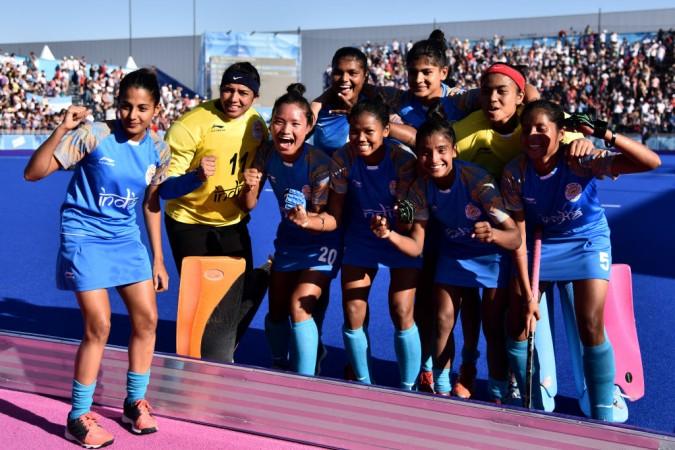A glass ceiling that looked unlikely to be broken, is all set to be shattered at the Aligarh Muslim University (AMU) as for the first time in its history, it can boast of a girls' hockey team.
The university's first-ever girls' team is a junior venture that includes students from the 10 schools at the campus that's administered by its governing body and if all goes well the AMU girls could be playing their first match in February 2019.
"This is a great beginning for women's hockey and, in particular, Muslim girls to get a chance to play the game. It will open many doors for them," said Aslam Sher Khan, a World Cup-winner with the Indian men's hockey team in 1975. He had a brief, fleeting sojourn with AMU, having represented the university in a North Zone championships in 1970.

"You'd be hard-pressed to name a handful of Muslim hockey players at the top level. Sirf, ikkey, dukkey hi hongey (only one or two might be there)," he said, adding that Saba Anjum Karim, the 2000s Indian team mainstay and 2002 Commonwealth Games gold winner from Chhattisgarh, is probably the most well-known Muslim woman hockey player.
Girls from the junior team can be seen practising every evening at the university's ground near Sir Syed Hall under the supervision of their coach, Anees-Ur-Rehman, a former Indian international hockey player from the mid-80s and current deputy director of the AMU sports committee.
Naseem Zehra, a 13-year-old, says that playing hockey is not just helping her realize her dream but gives her a social edge in the campus.
"Playing hockey was never on my mind until one day my brother told me that a girls' hockey team was being formed. I decided to try it out and now am enjoying it very much," said Naseem. "But you know what's the best part? Everyone now wants to be friends with me since they think that girls in the hockey team are cool."
The enthusiasm of the junior girls has inspired the seniors too as a final year graduation student, Afreen Ali has taken to the game.
But AMU's hockey revolution has not been easy and took a very long time to get where it currently has. In 1982, Razia Rizvi, deputy director, physical education at AMU's women's college, tried hard to make girls play hockey in the university but ran into the hurdle known as prejudice.
"After eight years of effort, when nothing happened, I decided to drop the idea," Rizvi reminisces, listing acute funds crunch, little or no support from university authorities uncomfortable with the idea of women playing – considered a 'man's sport' – as the main reasons for the initial failure.
"The previous VCs did not take much interest in promoting women in sports. However, things began to change a few years ago after Lt Gen Zameer Uddin Shah took over. The present VC Tariq Mansoor also supports girls who want to take up sports seriously," she added.

Coach Rehman said that initially he was unsure how this new move would be received, but is delighted by the "overwhelming response".
"Initially, we were not sure how girls would respond to the idea of playing hockey but we received an overwhelming response and girls have been diligently practising since August. All of them are working very hard and we hope they will shape up as excellent players. This is just the start, but it looks good," he said.
AMU has been a hotbed for hockey legends in the past which include the likes of Masood Minhaj (Los Angeles Olympics, 1932), Ahsan Mohammad Khan (Berlin Olympics, 1936), Lt A Shakoor, Madan Lal, Lateef-ur Rehman, Akhtar Husain Hayat (all of whom played in London Olympics, 1948), Jogendra Singh (Rome Olympics, 1960), SM Ali Sayeed (Tokyo, 1964), Inamur Rehman (Mexico Olympics,1968) as well as 1975 World Cup winner BP Govinda.
The last Olympic gold medal winner from the university was Zafar Iqbal at Moscow in 1980.

















